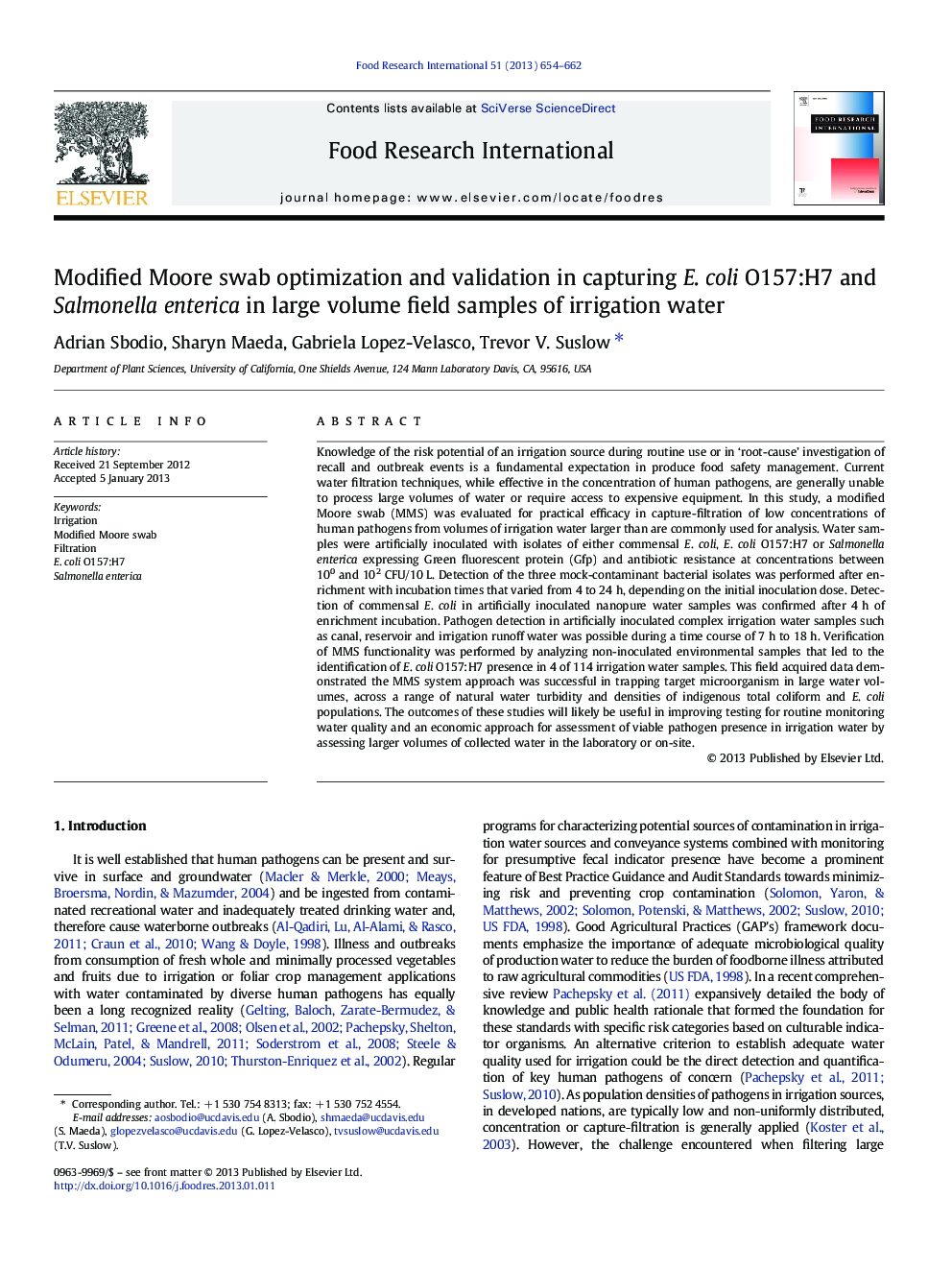| کد مقاله | کد نشریه | سال انتشار | مقاله انگلیسی | نسخه تمام متن |
|---|---|---|---|---|
| 6398049 | 1330680 | 2013 | 9 صفحه PDF | دانلود رایگان |

Knowledge of the risk potential of an irrigation source during routine use or in 'root-cause' investigation of recall and outbreak events is a fundamental expectation in produce food safety management. Current water filtration techniques, while effective in the concentration of human pathogens, are generally unable to process large volumes of water or require access to expensive equipment. In this study, a modified Moore swab (MMS) was evaluated for practical efficacy in capture-filtration of low concentrations of human pathogens from volumes of irrigation water larger than are commonly used for analysis. Water samples were artificially inoculated with isolates of either commensal E. coli, E. coli O157:H7 or Salmonella enterica expressing Green fluorescent protein (Gfp) and antibiotic resistance at concentrations between 100 and 102Â CFU/10Â L. Detection of the three mock-contaminant bacterial isolates was performed after enrichment with incubation times that varied from 4 to 24Â h, depending on the initial inoculation dose. Detection of commensal E. coli in artificially inoculated nanopure water samples was confirmed after 4Â h of enrichment incubation. Pathogen detection in artificially inoculated complex irrigation water samples such as canal, reservoir and irrigation runoff water was possible during a time course of 7Â h to 18Â h. Verification of MMS functionality was performed by analyzing non-inoculated environmental samples that led to the identification of E. coli O157:H7 presence in 4 of 114 irrigation water samples. This field acquired data demonstrated the MMS system approach was successful in trapping target microorganism in large water volumes, across a range of natural water turbidity and densities of indigenous total coliform and E. coli populations. The outcomes of these studies will likely be useful in improving testing for routine monitoring water quality and an economic approach for assessment of viable pathogen presence in irrigation water by assessing larger volumes of collected water in the laboratory or on-site.
⺠A low cost method for capture of enteric bacterial pathogens in water was tested. ⺠The field-deployable system was validated in environmental and irrigation sources. ⺠Detection of 2 CFU/10L was possible with enrichment and PCR in a little as 7 hours. ⺠Contaminating E. coli O157:H7 and S. enterica were found in irrigation water. ⺠The Modified Moore Swab fits both preharvest and postharvest water testing.
Journal: Food Research International - Volume 51, Issue 2, May 2013, Pages 654-662